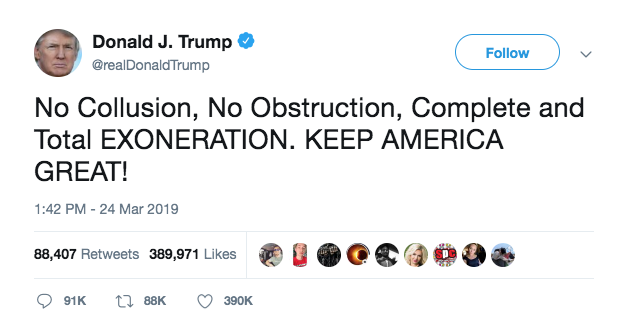
It seems like President Trump’s actions have been leading him towards impeachment. While any president would normally avoid that outcome at all costs, for Trump, impeachment could present itself as a strategic move for reelection.
There are two stages of removal from office. Impeachment is the first — a legal statement of charges by the House of Representatives, essentially equivalent to an indictment in criminal law. In order for Trump to be removed from office, he must be convicted by a two-thirds majority in the Senate via trial. Trump knows that Democrats, with a GOP majority in the Senate, would never even get close to a two-thirds majority, so he is rightfully not scared of what might follow his potential indictment.
Impeachment by the House of Representatives without a removal by the Senate would transform Trump into a martyr for the GOP. It would freely enable him to tweet about the persecution and prosecution he suffered at the hands of the liberal “Deep State” that he claims controls the House.
Using his indictment as a reinforcement of the “Witch Hunt” rhetoric he has been pushing since assuming office, Trump would hope to rally his supporters for the 2020 election against any Democratic nominee.
Anyone who has paid attention to Trump’s actions over the last couple of years can guess how the President would frame his eventual trial acquittal. Namely, like he did after the Mueller Report was published, he would claim that it clears him of all accusations. To directly quote the President’s tweet on July 27 about his (incorrect) interpretation of the Special Counsel’s conclusions: “No Collusion, No Obstruction, Complete and Total EXONERATION. KEEP AMERICA GREAT!”
It is likely that he would continue to perpetuate narratives of an undying “phony impeachment Witch Hunt,” as he referenced it in a tweet on Nov. 19. It is alarming and disheartening that these misleading proclamations have time and time again strengthened Trump’s voters’ refrain: if Democrats and liberals are attacking Trump, he must be doing something right.
Moreover, what Trump would find in the Senate is a trial that he would almost certainly win by a significant, rally-worthy margin. Removing him from office would take a supermajority, meaning that every single one of the 45 Democrats, 2 independents, and a whopping 20 Republicans would have to vote to convict, an outcome that does not seem at all probable in today’s current political conditions.
Furthermore, the fundamental legal principle that one is innocent until proven guilty would no longer be applicable. Should they refuse to convict, GOP Senators, who are supposed to act as part of the impartial jury, would subjugate legal principle to their blind devotion to and political dependence on the President.
However, there are alternate theories to the nature of the president’s absurd behavior. First, the argument presented in this article could be overestimating Trump’s forethought; his response to the impeachment hearing could be more reactionary than anything else. It is also possible that the President’s legal counsel has told him to assume that he is going to get impeached, and he could be attempting to lay the groundwork for his plans to use the proceedings to his advantage. If, beyond these theories, there are other reasons for his tweets about impeachment, his brazen witness intimidation, and his wild accusations about Democrats, whistleblowers, and fake evidence, they are, at this point, incomprehensible.
Whether Trump actually wants to use impeachment as a twisted reelection strategy, plans to lean into the proceedings because he can rely on the Senate to exonerate him, or is just responding based on pure emotion, his motivations are nonetheless unorthodox and inscrutable.

















